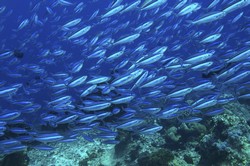A test for toxins in tropical fish
CFP is caused by eating tropical or semi-tropical fish that contain toxins, known as ciguatoxins (CTXs), produced by certain marine microalgae. CFP can have serious health implications for sufferers and affects around 500 000 people a year. Symptoms include nausea, vomiting and diarrhoea followed by headaches and hallucinations, and neurological problems that may persist for years. In addition to the risk to public health, ciguatera also causes major economic loss to fisheries and restricts the use of seafood protein in local diets. The EU-funded CIGUATOOLS(opens in new window) (Development of a rapid test kit and supporting reference standards capable of detecting the emerging fish toxin ciguatoxin in European and global waters) initiative aimed to produce reference standards for CTXs to easily analyse the presence of the toxins in fish. Researchers worked to identify the kinds of CTX present in EU waters and to develop vital reference standards. They extracted compounds from the Gambierdiscus alga, and were able to analyse the CTXs and identify standards for two different molecules. The team also successfully developed a DNA method to detect the algae that produces the CTXs that end up in fish destined for consumption. CIGUATOOLS research will help advance knowledge of CTXs and contribute to the development of tools for reducing its impact by helping to avoid human consumption of contaminated fish.







